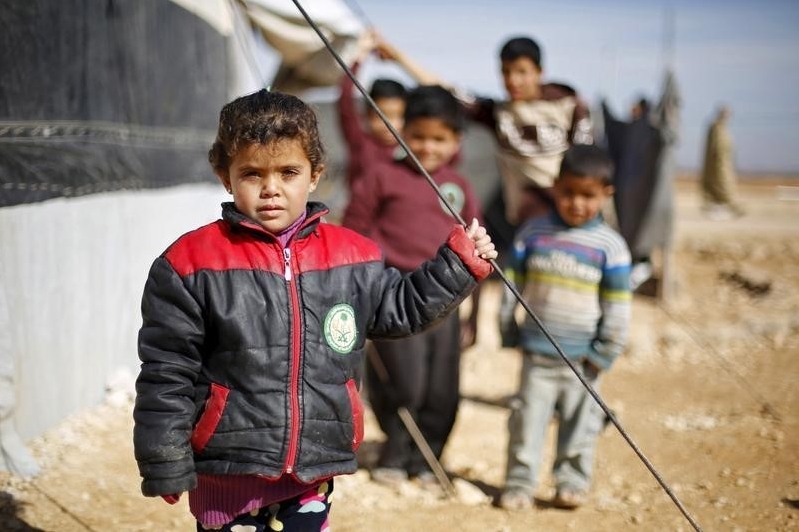
U.N. aid agencies have made their first deliveries of relief in weeks to thousands of Syrian refugees stranded on Jordan's northeastern border with Syria, the world body said on Thursday.
More than 75,000 people, mostly women and children, have been stuck for months in makeshift camps in a no-man's land on the Syrian side of the border, after fleeing central and eastern Syria.
International relief workers and refugees said in June they were running out of food after a militant suicide attack prompted the army to shut the area, allowing only water trucks to enter.
"Unable either to cross the border or turn back, the situation facing these women, men and children has grown more dire by the day," the U.N. World Food Programme (WFP) said in a joint statement with the United Nations' refugee agency (UNHCR), children's agency UNICEF, and International Organization for Migration (IOM).
"Sheltering in makeshift tents in harsh desert conditions with temperatures of up to 50 degrees Celsius and sudden sand storms, they are without sufficient food and have barely enough water to survive," the statement said.
The agencies said they delivered a month's supply of food and hygiene items but life-saving healthcare was also urgently needed with pregnant women, children, the elderly and the sick especially vulnerable.
The WFP said last month many Syrians had used up all their savings to reach the sparsely populated, desert area in the hope of crossing the border, and lacked money to buy food. Some were falling ill.
The WFP said the agencies used drones for the first time to monitor the distribution of aid.
"(It) allows for a certain degree of assurance that the assistance is going to the people it is intended for," Frances Kennedy, WFP spokeswoman, told the Thomson Reuters Foundation by email from Rome.
The WFP said last month it did not have access to the camps but relied on village elders to deliver aid.







